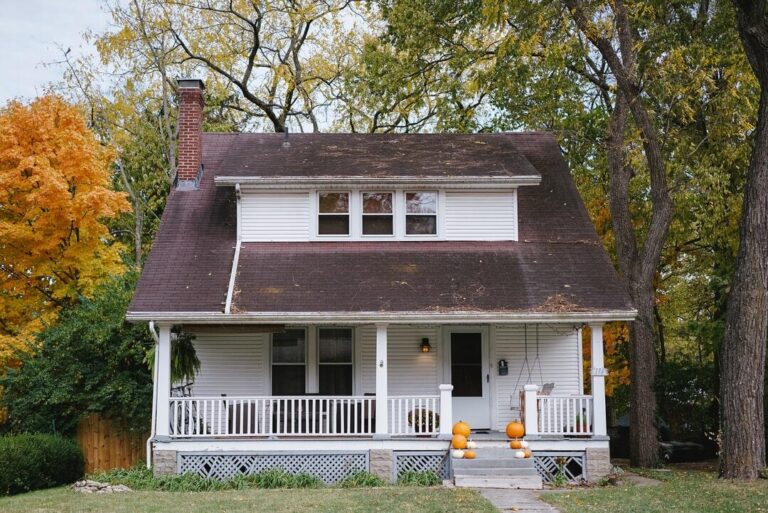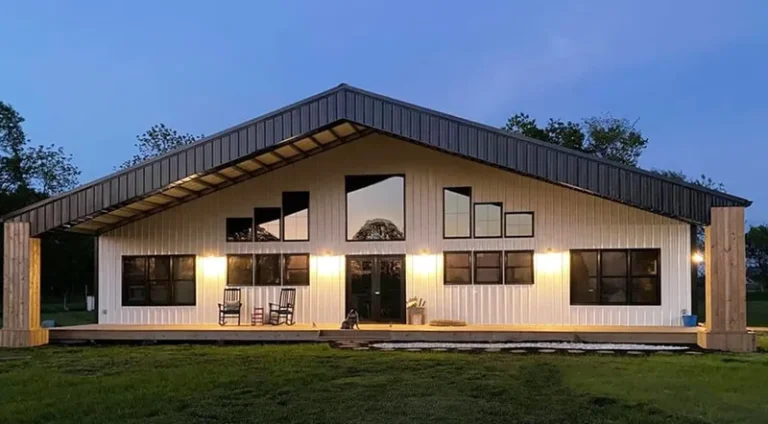Understanding House Codes: A Comprehensive Guide to Ensuring Compliance
Welcome to our comprehensive guide on house codes! Whether you’re a homeowner, real estate agent, or simply interested in understanding the regulations that govern residential properties, this article is for you. House codes play a crucial role in ensuring the safety and compliance of homes across the country. In this blog post, we’ll dive into what house codes are, why compliance is important, and provide valuable insights on how to navigate the ever-changing landscape of these regulations. So grab your coffee (or tea) and let’s get started on unraveling the mysteries of house codes!
What are House Codes?
House codes refer to a set of regulations and standards that govern the construction, maintenance, and safety requirements for residential buildings. These codes are established by local government authorities to ensure that houses meet specific criteria in terms of structural integrity, electrical systems, plumbing, fire safety measures, and more.
Compliance with house codes is essential for several reasons. First and foremost, it ensures the safety of residents by minimizing potential hazards and risks associated with faulty construction or outdated systems. Additionally, adhering to these codes helps maintain property values and protects homeowners from legal liabilities.
In January 2024, new house codes will be introduced to further enhance the safety and efficiency of residential buildings. These updated regulations aim to address emerging concerns such as energy conservation, accessibility features for differently-abled individuals, and sustainable design practices.
Redeeming January 2024 House Codes may require homeowners to make certain modifications or upgrades to their properties. However, these investments can have long-term benefits in terms of increased comfort levels, reduced utility bills through energy-efficient solutions,
and improved resale value.
While complying with current house codes is crucial for every homeowner’s peace of mind,, It’s also important not forget about expired house codes., Expired house code compliance can result in penalties., Regular inspections should always be conducted.. By staying proactive,, you can stay ahead of any required updates or repairs..
Importance of Compliance
Compliance with house codes is not something to be taken lightly. It plays a crucial role in ensuring the safety and well-being of occupants, as well as maintaining the integrity of buildings. By adhering to these codes, homeowners can create a living space that meets industry standards and regulations.
One significant reason why compliance is so important is that it helps prevent accidents and hazards. House codes cover various aspects such as electrical wiring, plumbing systems, fire safety measures, and structural stability. By following these guidelines, homeowners can minimize the risk of electrical fires, water leaks, or collapsing structures.
Additionally, compliance with house codes also ensures the longevity and value of your property. When you adhere to these regulations during construction or renovation projects, it guarantees that your home meets quality standards set by relevant authorities. This not only enhances occupant comfort but also increases property resale value.
Moreover, complying with house codes demonstrates social responsibility towards your community. These regulations are designed to ensure that homes are safe for everyone residing in them or visiting them. By meeting these requirements, you contribute to creating a safer neighborhood for all.
January 2024 House Codes
January 2024 House Codes bring about new regulations and standards that homeowners must adhere to. These codes are designed to ensure the safety, functionality, and efficiency of houses across the board.
One significant aspect of these codes is energy efficiency. With an increasing focus on sustainability, January 2024 House Codes aim to reduce energy consumption by implementing requirements for insulation, windows, heating systems, and more. This not only benefits the environment but also helps homeowners save on utility bills in the long run.
Another key area addressed in these codes is safety. From fire prevention measures to electrical wiring standards, compliance with January 2024 House Codes ensures that homes are equipped with necessary safeguards against potential hazards.
Furthermore, these house codes emphasize accessibility features for individuals with disabilities. They set guidelines for ramps, doorways widths, grab bars installation in bathrooms and other accommodations that promote inclusivity within residential environments.
To redeem January 2024 House Codes successfully means staying informed about the specific requirements and working closely with contractors or builders who have expertise in this area. Homeowners should consult local building departments or hire professionals knowledgeable about current regulations.
By understanding and complying with January 2024 House Codes before embarking on any home improvement project or new construction endeavor, you can ensure your property meets all required standards while enjoying a safe and sustainable living space.
Overview of January 2024 House Codes
January 2024 is a significant milestone for house codes. It marks the implementation of new regulations that homeowners need to comply with. These house codes are designed to ensure safety, efficiency, and sustainability in residential buildings.
The January 2024 house codes cover various aspects of a home, from electrical systems to insulation requirements. One key area of focus is energy efficiency. The new regulations aim to reduce carbon emissions by promoting the use of renewable energy sources and implementing stricter standards for insulation and HVAC systems.
Another important aspect covered by the January 2024 house codes is safety. Regulations pertaining to fire prevention, smoke detectors, and emergency exits have been updated to enhance occupant protection in case of emergencies.
Homeowners must familiarize themselves with these new guidelines and ensure their properties meet the necessary requirements. Failure to comply may result in penalties or even legal consequences.
Consulting professionals such as architects or contractors can be beneficial when navigating through the complexities of the January 2024 house codes. They can provide expert advice on how best to optimize your home’s compliance while minimizing disruptions during any required renovations or upgrades.
By adhering to these new regulations, homeowners not only contribute towards a safer and more sustainable future but also increase their property value by demonstrating compliance with modern building standards.
Ensuring compliance with the January 2024 house codes may seem daunting at first glance, but it is an essential responsibility for homeowners who care about their safety, environmental impact, and overall well-being.
Redeeming January 2024 House Codes
The implementation of new house codes in January 2024 has brought about numerous changes and challenges for homeowners across the country. It’s important to stay informed and compliant with these regulations to ensure a safe living environment.
So, how can you redeem your January 2024 house codes? First and foremost, familiarize yourself with the specific requirements outlined by your local housing authority. These may vary depending on your location, so it’s crucial to be aware of any unique guidelines that apply to your area.
Once you have a clear understanding of the regulations, take proactive steps to address any compliance issues within your home. This could involve making necessary repairs or updates in order to meet the standards set forth by the house codes.
Consider seeking professional assistance if needed. Hiring a licensed contractor or inspector can provide valuable insight into areas that require attention. They can identify potential hazards or violations that may go unnoticed by an untrained eye.
If you find yourself overwhelmed or unsure about certain aspects of compliance, don’t hesitate to reach out for help. Local housing authorities are available to answer questions and provide guidance throughout the process.
By taking these steps and diligently following through with necessary actions, you can successfully redeem your January 2024 house codes and create a safer living space for yourself and those around you.
Remember, compliance is not just about avoiding penalties—it’s about ensuring the well-being of everyone residing in the property. Stay informed, take action when needed, and prioritize safety above all else!
Expired House Codes
As with any regulations, house codes have a lifespan. Over time, they become outdated and are replaced by newer versions to keep up with changing standards and technologies. These expired house codes may no longer be valid or enforceable, but that doesn’t mean they can be ignored.
It’s important for homeowners and property owners to stay informed about the expiration dates of their local house codes. Failure to comply with expired codes could result in penalties or even legal issues down the line.
When an old code expires, it is typically replaced by a new version that addresses current safety standards and building practices. This means that properties built before the expiration date of an old code may need to be retrofitted or updated to meet the requirements of the new code.
To ensure compliance with expired house codes, it’s advisable to consult with professionals who specialize in building regulations. They can provide guidance on what changes or upgrades may be necessary to bring your property up to code.
Remember, just because a house code has expired doesn’t mean you can disregard it entirely. Ignoring these regulations could put occupants at risk and leave you liable for any resulting damages.
Stay proactive when it comes to keeping your property compliant with both current and expired house codes. By staying informed and seeking professional advice when needed, you can avoid potential headaches down the road while ensuring a safe living environment for all occupants.
Tips for Ensuring Compliance
1. Stay Informed: Keeping up with the latest changes in house codes is crucial for ensuring compliance. Subscribe to industry newsletters, attend workshops or webinars, and regularly check official websites for updates.
2. Conduct Regular Inspections: Schedule regular inspections of your property to identify any potential code violations. This proactive approach allows you to address issues before they escalate and helps maintain a safe and compliant environment.
3. Collaborate with Professionals: Seek guidance from professionals such as architects, engineers, or contractors who specialize in building codes. Their expertise can help ensure that your property meets all necessary requirements.
4. Document Everything: Maintain detailed records of any renovations or repairs made on your property. These documents can serve as evidence of compliance if questions arise in the future.
5. Train Your Team: If you own a rental property or manage a team responsible for maintenance and repairs, invest in training programs focused on house code’s compliance. Educating your team will help prevent accidental violations.
6. Engage with Local Authorities: Building relationships with local authorities responsible for enforcing house code’s can be beneficial when seeking guidance or clarifications regarding specific regulations.
7. Stay Organized: Keep all relevant permits, certificates, inspection reports, and other related documentation well-organized and easily accessible should they be needed for reference or verification purposes.
Conclusion
House code’s play a crucial role in ensuring the safety and compliance of residential properties. Understanding and adhering to these codes is essential for homeowners, builders, and contractors alike. From January 2024 house code’s to expired ones, staying informed about the latest requirements is key.
Compliance with house codes not only ensures safe living conditions but also helps avoid costly penalties and legal issues. By following the guidelines set by local authorities, property owners can maintain a secure environment for their families while also promoting community standards.
In January 2024, new house code’s will come into effect with updated regulations aimed at further enhancing safety measures. It is important for all stakeholders to familiarize themselves with these changes and make any necessary adjustments to remain compliant.
Redeeming January 2024 house code’s involves conducting thorough inspections of existing structures as well as implementing modifications that align with the new requirements. This may include installing smoke detectors in every bedroom or updating electrical systems to meet current safety standards.
Expired house code’s should never be overlooked either. While they might no longer be actively enforced, it doesn’t mean that obsolete regulations are without merit. In fact, many elements of old house code’s continue to provide valuable insights into construction practices that promote safety and longevity.






